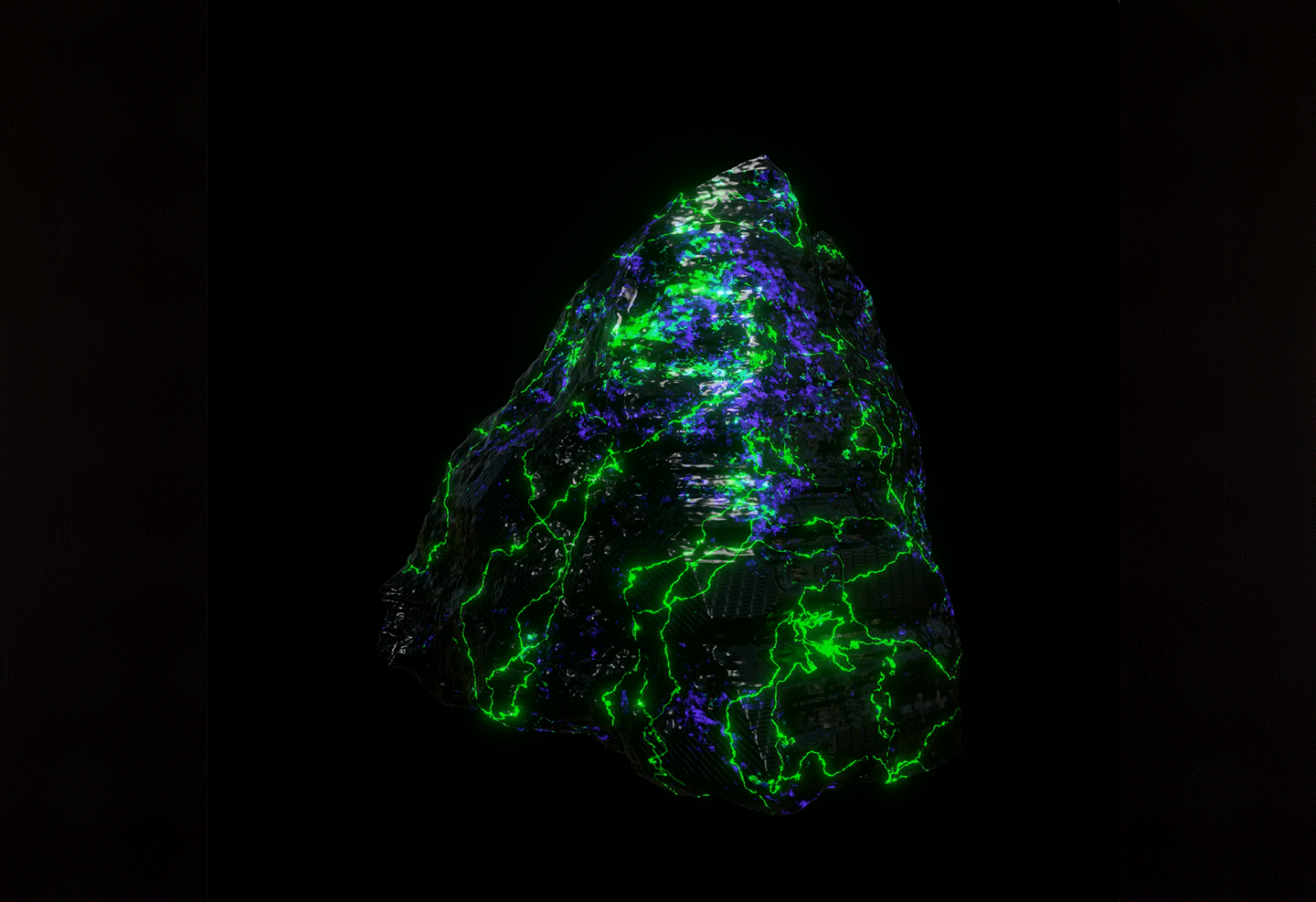Simon Denny: Metaverse Landscapes
May 14–July 16, 2023
Sophienstraße 2
30159 Hannover
Germany
Hours: Tuesday–Saturday 12–7pm,
Sunday 11am–7pm
T +49 511 16992780
F +49 511 1699278278
mail@kunstverein-hannover.de
For its second presentation in 2023 Kunstverein Hannover looks at what’s coming and what’s already here with exhibitions by two artists whose practices tap into future technologies to reflect on how structures of power cut across economies and societies of the present.
Uncomputables marks the first solo exhibition in Germany of Agnieszka Kurant (b. 1978, Poland). Bringing together a body of work created over the last few years—previously shown at the Guggenheim Museum, New York; Castello di Rivoli, Turin; and Centre Pompidou, Paris—as well as new commissions, the exhibition explores collective and nonhuman intelligences (ranging from bacteria and slime molds to artificial intelligence), the future of labor and creativity, and the extractivist economy of digital surveillance capitalism. The New York-based conceptual artist’s work investigates the impact of technology on transformations of the human as well as plural subjectivity and collective agency.
Kurant’s artworks emulate quasi-alchemical transmutations of energy and matter and undergo perpetual evolution, like living organisms. The artist creates conditions in which unpredictable, unstable forms—assemblages and amalgamations—emerge or crystallize from complex systems of human and nonhuman agents: millions of molecules, microbes, termites, ghost workers, or protesters. Kurant’s experimental tactics bring to life hybrid, impossible objects, oscillating between the digital, biological, and mineral, between natural and artificial, real and virtual, life and nonlife. The exhibition includes cybernetic organisms, a hologram, an automaton machine, hybrid geological formations, and sculptures built by termite colonies.
In Chemical Garden, plant-like crystalline structures emerge from a mix of inorganic chemicals: salts of metals used in computers. The evolving liquid crystal paintings Conversions form mesmerizing patterns based on the AI-harvested emotions of members of protest movements worldwide. Semiotic Life entangles a living 74-year-old juniper bonsai tree with its future algorithmically predicted optimized form. Alien Internet imagines a shape-shifting lifeform created with ferrofluid, digitally controlled in an electromagnetic field based on migration data from thousands of animals worldwide.
Drawing on energy as a currency, Kurant’s artworks explore the post-digital economy, which treats the future as speculative real estate. The exhibition at Kunstverein Hannover probes these possible futures—simulated, quantifiable, and ready to be monetized—as based on systemic errors and ultimately uncomputable.
Metaverse Landscapes is the first solo presentation of a new series of paintings by Simon Denny (b. 1982, New Zealand). These works foreground the visual language of various metaverses, looking at the vernacular and mechanics of these rapidly growing virtual worlds which offer their users an array of interactions from social networking via custom-made characters to the purchase and sale of collectibles and, ultimately, digital real estate.
In this new series, Denny fuses digital imagery with layers of print and paint, drawing upon the art-historical idioms of landscape painting and modernist abstraction and tracing links to how virtual lands are depicted today. Combining UV print and oil painting, the works show fragments of metaverses as their plots of land are represented on the online marketplaces where they are bought and sold.
These plots of land and the pictorial conventions used to depict them echo modes of representation employed by European colonizers, who commissioned artists to depict the spaces they sought to colonize within their own painterly traditions, often using the resulting landscape paintings to sell land to other settlers as private property.
In a technologically-saturated present where platforms like Google Maps claim to represent the physical world, Denny confronts the visitor with map-like images that are in flux: they precede their territories and can be endlessly transacted. Metaverse Landscapes reflects the social and political dynamics at play in new paradigms of digital property. Denny exposes and engages with the historically familiar logic that, while shaped and experienced in the present by a few, seems the future to many.
Program
The exhibitions are accompanied by a series of talks: on AI, the Body and Colonialism by Sara Morais dos Santos Bruss, Curator for Scientific, Digital, and Media Practices at Haus der Kulturen der Welt (HKW), Berlin; on Bohemian Landscapes and Hyperspaces by Marlene Wenger, Curator at Kunstmuseum Bern; as well as a presentation by Jan Groos, researcher and director of the Future Histories podcast.
Uncomputables is generously supported by Adam Mickiewicz Institute; Schering Stiftung; Rudolf Augstein Stiftung; and Polish Institute Düsseldorf. With the kind support of Sitterwerk, Kunstgiesserei St. Gallen; Kunsthal Gent; and Mudam Luxembourg – Musée d’Art Moderne Grand-Duc Jean.
Metaverse Landscapes is generously supported by Altman Siegel, San Francisco; Galerie Buchholz, Cologne, Berlin, New York; Fine Arts, Sydney; and Petzel Gallery, New York.
The exhibitions are curated by Christoph Platz-Gallus, director Kunstverein Hannover, and have been realized in curatorial collaboration with Krzysztof Kościuczuk.


